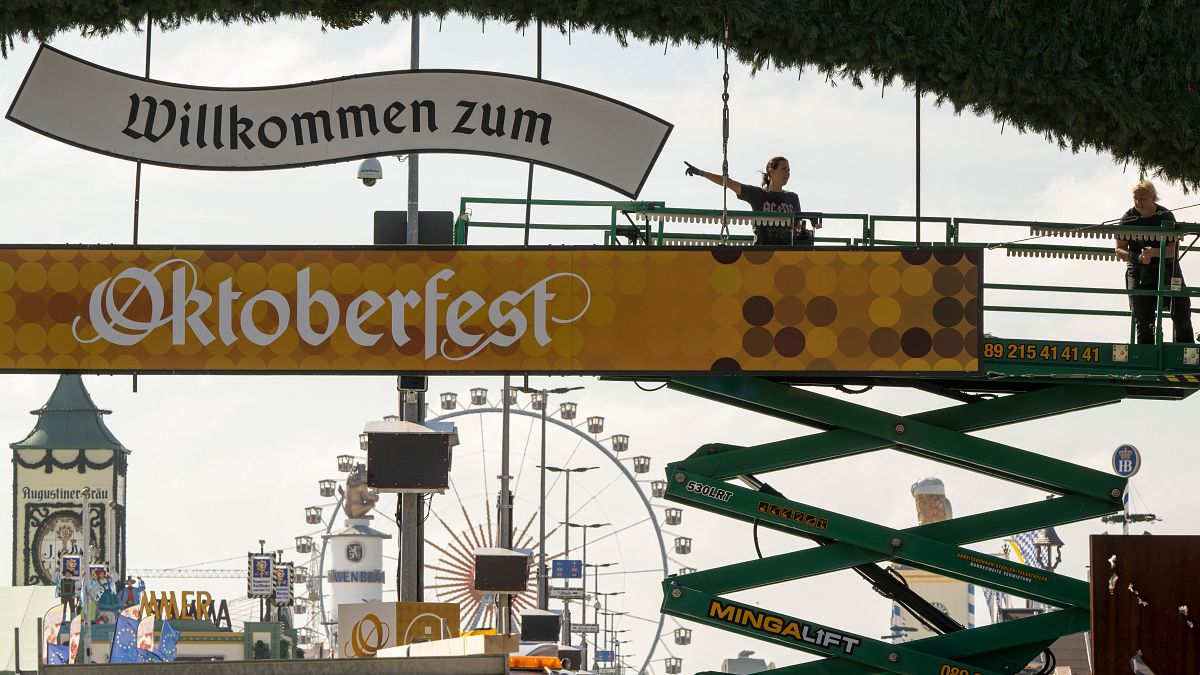As Germany prepares for the start of Oktoberfest, the largest folk festival in the world, security has been tightened in response to recent violent attacks across the country. The increased security measures include the use of metal detectors at entry points for the first time in the festival’s history. This comes after a deadly knife attack in Solingen, which left three dead and eight wounded. The attacker, a 26-year-old Syrian asylum seeker, had reportedly absconded after his application was denied, before carrying out the assault. The Islamic State group claimed responsibility for the rampage, heightening concerns about safety and immigration.
To ensure the safety of festival-goers, hand-held metal detectors, prohibition of knives, glass bottles, and backpacks, as well as increased police presence and surveillance cameras, will be implemented at Oktoberfest. Munich Mayor Dieter Reiter emphasized the importance of preventing weapons from being brought into the festival grounds. Previous security measures were put in place in 2016 following several attacks in Munich. Security expert Peter Neumann stressed the importance of securing large-scale events like Oktoberfest, as they are potential targets for extremists seeking to cause widespread panic and terror. Recent plots in France, Austria, and Germany have highlighted the need for heightened security measures at public gatherings.
Despite the challenges of securing an event like Oktoberfest, organisers are confident that they can provide a safe environment for attendees. Clemens Baumgärtner, the festival’s organiser, has assured the public that Oktoberfest will be “the safest place in Germany.” However, security expert Peter Neumann remains cautious, noting the difficulty of controlling the movements of millions of people, especially in an environment where alcohol consumption is prevalent. While security measures are in place to detect and prevent potential threats, the sheer scale of the festival makes it a challenging task to ensure complete safety.
The use of metal detectors and other security measures at Oktoberfest reflect a growing concern about the threat of violence at public events in Germany and across Europe. Recent attacks and foiled plots have heightened fears about the potential for terrorism and extremism to impact large gatherings of people. The response to these threats includes increased monitoring, border controls, and law enforcement presence at events like Oktoberfest. The safety of attendees is a top priority for organisers and officials, as they strive to provide an enjoyable and secure environment for all festival-goers.
As Germany grapples with the aftermath of recent violent incidents and the ongoing immigration debate, the heightened security at Oktoberfest serves as a reminder of the need for vigilance and preparedness in the face of potential threats. The festival, which attracts millions of visitors each year, remains a symbol of German culture and tradition. By implementing stringent security measures and prioritizing the safety of attendees, Oktoberfest organisers are taking proactive steps to ensure that the event remains a celebration of Bavarian culture while also being a safe and secure environment for all who attend. With a focus on prevention and detection of security risks, Oktoberfest aims to strike a balance between tradition and modern-day security challenges, providing a model for other large-scale events facing similar threats.











